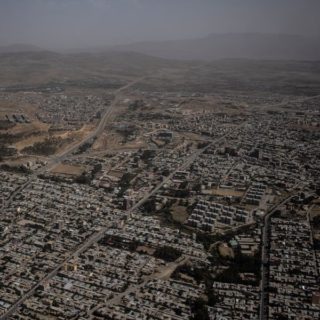ISLAMABAD – THE LAST Royal Air Force transporter has left and the British are gone, taking with them 15,000 people and 173 cats and dogs. The French have lowered their tricolour and departed, having evacuated some 3,000 people. Germany got out another 5,100 people before calling it quits. Nation by nation the NATO powers that spent 20 years fighting alongside America in Afghanistan have in the past few days raced to end their missions.
General Kenneth McKenzie, head of US Central Command, announced the end of America’s withdrawal from Afghanistan at 3.30pm Eastern time on August 30th, which was in the wee hours of the morning of August 31st in Kabul: right on President Joe Biden’s schedule. As the last lumbering C-17 cargo plane lifted off from Kabul airport, banked over the peaks of the Hindu Kush and disappeared over the horizon, it left behind a country under full Taliban control, except for a pocket of resistance in the north and occasional attacks by militants from Islamic State Khorasan Province (ISKP).
In what may be a parting shot an American drone blew up a suspected car bomb near Kabul’s airport on the afternoon of August 29th. Locals said several civilians, including children, were killed. An American statement said the vehicle posed an imminent threat from the same ISKP militants who had suicide-bombed the crowd outside Kabul airport on August 26th, killing 170 Afghans and 13 American troops, among others.
The world has watched in dismay as thousands fearing Taliban reprisals have mobbed Kabul airport. In their desperation they have waded through sewage and clung onto departing aircraft. In the midst of all the misery, diplomats have been consumed with evacuating as many of their own citizens—as well as local staff, interpreters and other vulnerable Afghans—as possible.
Yet with the last planes out, policymakers’ thoughts must now turn to the future and how to deal with the new reality of Afghanistan. It may be tempting for the West to lick its wounds, disengage from the country and try to move on. It may be tempting, too, to isolate and marginalise the architects of that humiliation: the Taliban.
That would be a disaster, argues Moeed Yusuf, Pakistan’s national security adviser. Doing so would repeat the mistakes made when America abandoned Afghanistan after the Soviet withdrawal. His advice is tinged with nervousness. Mr Yusuf sees worrying parallels with the 1990s, when abandonment was followed by civil war, the rise of the Taliban and Afghanistan’s eventual status as a haven for terrorist groups, including al-Qaeda. If the world turns its back on the country once again, says Mr Yusuf, there will be more waves of refugees, another security vacuum that will be exploited by terrorist groups, and a humanitarian crisis.
As Afghanistan’s most closely connected neighbour, Pakistan would also be the most deeply affected by that outcome. At the height of the Soviet occupation in the 1980s, Pakistan had 5m Afghan refugees within its borders; many remain. Politicians are determined not to let that happen again. Not only would such a scenario be a catastrophe for the Afghan people and put pressure on Pakistan’s fragile state, but the ripples of migration and terrorism would once again reach Europe and beyond, argues Mr Yusuf.
The world would do better to use its levers of money and recognition to engage with the Taliban, in an attempt to encourage behaviour that would head off such crises, he says. Most countries have said they will wait to see how the Taliban govern before they make a decision on how to deal with Afghanistan’s new rulers. Mr Yusuf warns that that could be too late. “We are saying to the world: engage in Afghanistan in your selfish national interest,” he says.
Some will certainly balk at taking Pakistan’s advice. The country gave the Taliban’s leadership a safe haven while they fought in Afghanistan. Pakistan’s border regions have long been a recruiting ground for the militants, and its hospitals have treated their wounded. The Afghan government that has just fallen accused Pakistan’s spooks of supplying arms to the Taliban, including bombs that were used to massacre civilians. America for years asked Pakistan to do more to use its influence to rein in the Taliban. As Afghan districts fell this summer, one senior Western official said there was now a feeling of Schadenfreude in Washington over what Pakistan may be about to reap from the Taliban takeover. “This is what you wanted, boys. We’re off. Good luck with it all,” the official said.
By The Economist





